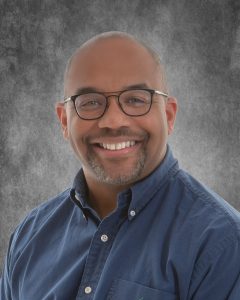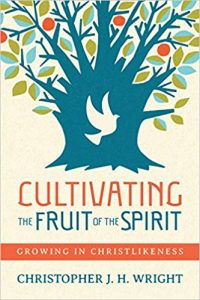 by Wayne Stapleton
by Wayne Stapleton
NAB VP of Cross-Cultural Engagement
February is the month in which Black history is acknowledged in the US. During this month, we plan to run articles highlighting significant events that took place in Black history, but one might ask, what does Black History Month have to do with the church?
As it turns out, a lot.
Because of the deep connection Black people have with the church, the history of the church and Black History Month are intertwined. Enslaved Blacks received the Christian religion in their new land, seeing the true Jesus behind the one worshiped by their slave masters. They made disciples and started churches and developed a Christian tradition faithful to Scripture that helped them persevere. Abolitionists were members of the church, protesting slavery because of the biblical teaching that all people are made in the image of God. Black churches developed the leaders that became many of the voices of civil rights for African-Americans during the movement that climaxed in the 1960s. It was in the basement of churches that Dr. King taught nonviolent protesters how to take a beating without retaliating, knowing that these atrocities would be broadcast to the rest of the country from the South.
There is only one Church, made up of many groups and cultures. As such, the Body of Christ has been a key voice in Black history. A church community on a missional-formational movement must be a community with growing self-awareness of its own diverse history and a loving curiosity about the people to whom it takes the Gospel, people loved by the Lord. Therefore, of concern to followers of Jesus walking in the footsteps of their Lord are the historic plight and current circumstances of brothers and sisters in Christ, as well as the hurting world for which Jesus died. The issue of injustice is of concern to those who worship a just God.
The church is not monolithic; the body of Christ is multi-faceted. A growing church is a learning church. A faithful church is a hopeful church. A church that is organized around the love and forgiveness of Jesus Christ extends that love and forgiveness to a hurting and broken world. The histories of Christian brothers and sisters who happen to be Black are heart-breaking and even infuriating. May we be vigilant to learn and grow and honor the purposes of Jesus Christ, so He might bring all who believe in Him to God.
Join Us for the Next Leadership Webinar
 Join us March 26, at 10:00 a.m. PDT, for a conversation with Christopher J. H. Wright. Born in Belfast, Northern Ireland, Wright earned his doctorate from Cambridge in Old Testament ethics. He taught Old Testament in India for five years (1983–1988) at Union Biblical Seminary and then returned to the faculty of All Nations Christian College, a missionary training school in England, where he was principal from 1993 to 2001. Wright is now the international director of the Langham Partnership International (known in the United States as John Stott Ministries), providing literature, scholarships, and preaching training for pastors in Majority World churches and seminaries. He has written several books, including The Mission of God: Unlocking the Bible’s Grand Narrative and Cultivating the Fruit of the Spirit: Growing in Christlikeness.
Join us March 26, at 10:00 a.m. PDT, for a conversation with Christopher J. H. Wright. Born in Belfast, Northern Ireland, Wright earned his doctorate from Cambridge in Old Testament ethics. He taught Old Testament in India for five years (1983–1988) at Union Biblical Seminary and then returned to the faculty of All Nations Christian College, a missionary training school in England, where he was principal from 1993 to 2001. Wright is now the international director of the Langham Partnership International (known in the United States as John Stott Ministries), providing literature, scholarships, and preaching training for pastors in Majority World churches and seminaries. He has written several books, including The Mission of God: Unlocking the Bible’s Grand Narrative and Cultivating the Fruit of the Spirit: Growing in Christlikeness.  An ordained Anglican, he serves on the staff of All Souls Church, Langham Place, London, England. Plan to join us by getting the book, Cultivating the Fruit of the Spirit: Growing in Christlikeness, and signing up at the link below! An email will be sent out to you a few days prior to the event with a link to access the webinar. If you have any questions, please contact either Kent Carlson or Lisa Schmidt.
An ordained Anglican, he serves on the staff of All Souls Church, Langham Place, London, England. Plan to join us by getting the book, Cultivating the Fruit of the Spirit: Growing in Christlikeness, and signing up at the link below! An email will be sent out to you a few days prior to the event with a link to access the webinar. If you have any questions, please contact either Kent Carlson or Lisa Schmidt.
Join us March 6 at 10:00 am PDT!
Missionary of the Week
Julie Stone, NAB Missionary in Cameroon. Under normal circumstances, Dr. Julie Stone serves in Cameroon at Banso Baptist Hospital, but due to the ongoing crisis in Cameroon, she had been displaced and working at Mboppi Baptist Hospital and Mbingo Baptist Hospital in Bamenda. Following an 18-month absence from Banso, she was able to return in January, reconnecting with the staff and learning of many stories of those suffering deprivation as a result of being caught in the middle of the political turmoil affecting the region. Praise God with Julie that she was able to to return to Banso for a few weeks and for the staff who are being used to spread the Gospel and continue trusting God. Pray for guidance as she heads back to Mbingo Hospital to help with the residency training. Pray for the ongoing strife in Cameroon, for resolution to this political crisis as roads shut back down because of upcoming elections. You can find more information about Julie’s ministry online at nabonmission.org/missionaries/julie-stone.
